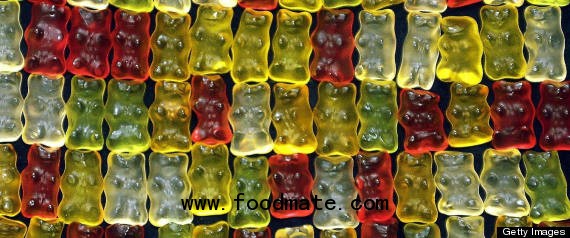
The day before Halloween, as millions of American children put the final touches on the costumes they would wear to spend an evening raiding their neighbors' homes for candy, lawyers in Landgericht Koln, Germany, suited up for a very different (but no less scary) confectionary conflict, Confectionary News reports. They were representing German candy manufacturer Haribo and Swiss chocolatier Lindt in a high-stakes legal battle over the right to make sweets in the form of golden bears.
Haribo has been manufacturing multi-colored gummy bears called "Gold-Bears" since 1967. The company has held a global trademark with the World Intellectual Property Organization for use of the term "Gold-Bears" in candy since 1975.
Lindt hasn't suddenly tried to get into the gummy bear market. But last November, it did start selling small chocolate bears wrapped in golden tin foil under the brand name "Teddy." Haribo alleges that using a golden bear form alone violates the company's trademark.
Lindt, for its part, alleges that the company intentionally avoided calling its product "Gold Teddy" out of deference to Haribo's trademark. The court is slated to issue its ruling on the matter on December 18.
The bottom line? Gummy bears are a lot more like real bears than we ever would have suspected. Though they may look soft and sweet from afar, they are very territorial animals, and will defend their turf viciously if threatened.







